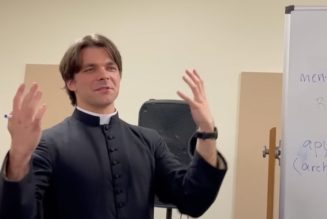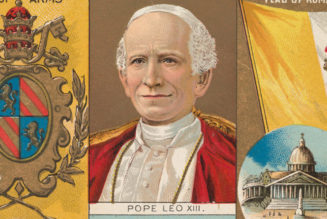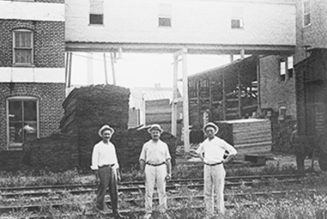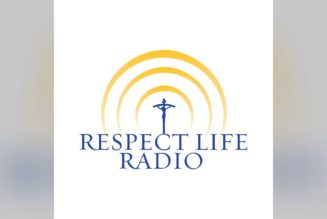
As he walked the earth after his resurrection for forty days, Jesus provided the gift of his presence to everyone who encountered him. This selfless Act of faith was part of Jesus’ post-resurrection mission to reassure His Apostles and disciples that they would not be alone after his ascension to heaven. He walked, spoke, ate, taught, reassured, and prepared his disciples for the journey ahead. His conversation with the disciples on the road to Emmaus and ultimately the celebration of the Eucharistic feast healed the spiritual blindness of the Apostles due to their lack of faith. This was all part of Jesus’s plan to prepare the Apostles for his final catechetical instruction to go forth and go into the world and preach the Gospel.[1]
The time Jesus spent with his Apostles and disciples was needed to spiritually open their hearts and remove any doubt about what had just occurred to the Messiah was not in vain. This is why the Pentecost event was so instrumental in the mission of the Apostles and the Church. All spiritual impediments needed to be removed to receive the Holy Spirit. Pentecost answered the question: “What do we do now?” Christ addresses their confusion and doubt after his Ascension by preparing his Apostles to receive the gifts of the Holy Spirit at Pentecost. The gifts were intended to strengthen the Apostle’s journey to proclaim the Gospel of Jesus Christ. We encounter St. Peter taking his rightful place as the Vicar of Christ and recalling the salvific events that had taken place reminding his fellow disciples about the need to spread Jesus’ message of love and salvation.
Christ ensured that He would continue to be present to his disciples through the Holy Spirit and the establishment of the Church. Jesus infers this act in his discourse with St. Peter where he hands Peter the keys of the kingdom of heaven to bind and loose on earth as in heaven.[2] This unique discourse serves to prepare Peter, James, and John for the Transfiguration event which provided a history of how God the Father has been present to his people and a foretaste of how Jesus himself will continue to be present to his disciples.
It is important to understand that the gift of presence serves as a spiritual vehicle to listen and understand someone else’s journey. It provides an opportunity to be heard and express an intention to understand what the person is saying. The Word of God provides us with multiple examples of the Master’s method of presence before his death, Jesus calming the storm[3], his cleansing of the temple[4], the Samaritan woman at the well[5], and the institution of the Holy Eucharist.[6] St. John’s Gospel provides an example of what I would describe as a theology of presence,
“If you love me, you will keep my commandments. And I will ask the Father, and he will give you another Counselor, to be with you forever, even the Spirit of truth, whom the world cannot receive because it neither sees him nor knows him; you know him, for he dwells with you, and will be in you. “I will not leave you desolate; I will come to you. Yet a little while and the world will see me no more, but you will see me; because I live, you will live also. In that day you will know that I am in my Father, and you in me, and I in you. He who has my commandments and keeps them, he it is who loves me; and he who loves me will be loved by my Father, and I will love him and manifest myself to him.” Judas (not Iscariot) said to him, “Lord, how is it that you will manifest yourself to us, and not to the world?” Jesus answered him, “If a man loves me, he will keep my word, and my Father will love him, and we will come to him and make our home with him. He who does not love me does not keep my words; and the word which you hear is not mine but the Father’s who sent me.[7]
What does the phrase, a personal Pentecost mean? In practical terms, a personal Pentecost can be described as a person’s ability to make himself present to Christ through prayer, fasting, sacrifice, catechetical formation, and works of charity (spiritual corporal works of mercy). A personal Pentecost aims to actively desire to be present before Jesus Christ in word and deed. A primary example would be our presence before Christ in the Holy Sacrifice of the Mass, Eucharistic Adoration, and confession. Because we are created with a body and soul composite, it makes sense to use these faculties to be present before God the Father.
If there is a single faculty that serves as an entryway toward preparing for your personal Pentecost it is the act of prayer. The Catechism reminds us that the life of prayer is the habit of being in the presence of the thrice-holy God and in communion with Him. This communion of life is always possible because, through Baptism, we have already been united with Christ. Prayer is Christian in so far as it is communion with Christ and extends throughout the Church, which is his body.[8] May the Holy Spirit guide and strengthen our personal Pentecost to speak and live well in Jesus; name.
Come Holy Spirit!
Come, Holy Spirit, come!
And from your celestial home
Shed a ray of light divine!
Come, Father of the poor!
Come, source of all our store!
Come, within our bosoms shine.
You, of comforters the best;
You, the soul’s most welcome guest;
Sweet refreshment here below;
In our labor, rest most sweet;
Grateful coolness in the heat;
Solace in the midst of woe.
O most blessed Light divine,
Shine within these hearts of yours,
And our inmost being fill!
Where you are not, we have naught,
Nothing good in deed or thoughts,
Nothing free form taint of ill.
Heal our wounds, our strength renew;
On our dryness pour your dew;
Wash the stains of guilt away.
Bend the stubborn heart and will;
Melt the frozen, warm the chill;
Guide the steps that go astray.
On the faithful, who adore
And confess you, evermore
In your sevenfold gift descend;
Give them virtue’s sure reward;
Give them your salvation, Lord;
Give them joys that never end.
Amen. Alleluia.









